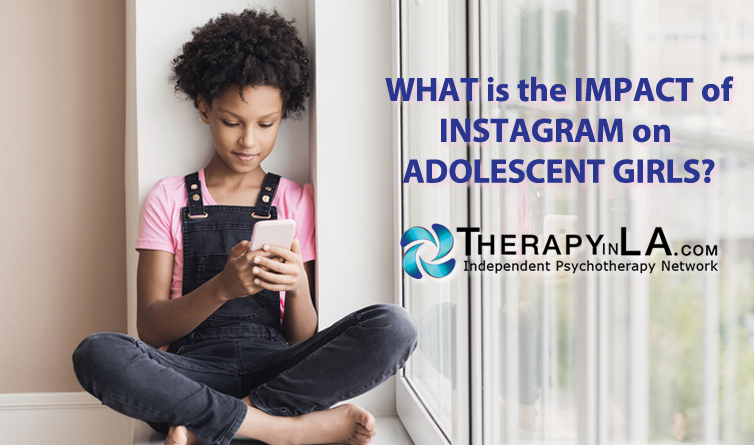WHAT is the IMPACT of INSTAGRAM on ADOLESCENT GIRLS?
WHAT is the IMPACT of INSTAGRAM on ADOLESCENT GIRLS?
By Alan M. Solomon, Ph.D.
The previous two blogs on eating disorders among teenage girls briefly mention the impact of social media. More specifics about this phenomenon are worrisome, to say the least (https://www.nytimes.com/2021/10/05/technology/teenage-girls-instagram.html).
In the last few years internal research inside of Instagram, a part of Facebook, found problems that are quite severe. As one 18-year-old girl said of her few years on the platform starting at 13 years old, “When I went on Instagram, all I saw were images of chiseled bodies, perfect abs and women doing 100 burpees in 10 minutes.” The researchers noted: “Thirty-two percent of teen girls said that when they felt bad about their bodies, Instagram made them feel worse. Comparisons on Instagram can change how young women view and describe themselves. We make body image issues worse for one in three teen girls.” The risks can potentially be lethal: for adolescents who report having suicidal thoughts, 13% of UK users and 6% of US users linked the desire to kill themselves to Instagram. In one study in the US and UK, among teens who feel “unattractive”, more than 40% stated that the feeling began with their use of Instagram.
The widespread use of Instagram among adolescents is measured by the fact that 40% of users of the platform are under 22 years old. About twenty-two million teens engage the platform each day in the US. US teens spend about 50% more time on Instagram than Facebook.
Public statements by Facebook executives have minimized these risks. CEO Mark Zuckerberg has said, “The research that we’ve seen is that using social apps to connect with other people can have positive mental health benefits.” Facebook’s research includes focus groups, online surveys, and diary studies in 2019 and 2020. They’ve also conducted large scale surveys of thousands of people in 2021. These researchers are all Facebook employees, with backgrounds in psychology, computer science, and analysis both quantitative and qualitative. They documented a phenomenon called “social comparison”: people assess their own worth in relationship to what they perceive in others’ wealth, attractiveness and success. “Social comparison is worse on Instagram”, worse than Tik-Tok or Snapchat, since Instagram “focuses heavily on body and lifestyle.” Many platform users present only the “best moments” in a carefully curated way, which can provoke teens into eating disorders, a distorted sense of their own bodies, and depression.
In an August 2021 hearing, Mr. Zuckerberg was asked to provide senators with Facebook’s internal research. The six-page response did not include the company’s own research. Senator Blumenthal noted, “Facebook’s answers were so evasive – failing to even respond to all our questions – that they really raise questions about what Facebook might be hiding.”
The addictive nature of the app is substantiated by two findings:
- Teens lack the self-control to reduce their time on the app, though they want to do so.
- Many teens “don’t like the amount of time they spend on the app, but feel like they have to be present.”
They often feel “addicted” and feel unable to stop looking at it, even though they know it’s harmful for their mental health. With the increased isolation due to the pandemic, this all became more urgent to be able to share with friends. One high school student in an informal survey of peers, found that 90% felt that social media affected their mental health in negative ways.
Our clinical practices at IPN confirm these observations of “social comparison” in negative ways, the addictive quality of online involvement, and the depressive impact on adolescents both girls and boys. The emotional cruelty at times in their exchanges can be very painful as well. Much of our therapeutic effort is to help girls (and boys) heal from these wounds and disengage from these activities.
Alan M. Solomon, Ph.D. is a clinical psychologist in private practice in Torrance, CA. A member of the Independent Psychotherapy Network, he can be reached at 310 539-2772 or dralanms@gmail.com Telehealth or in-person sessions for fully vaccinated individuals are available.
Copyright 2022 by Alan M. Solomon, Ph.D.

